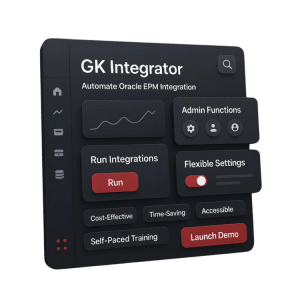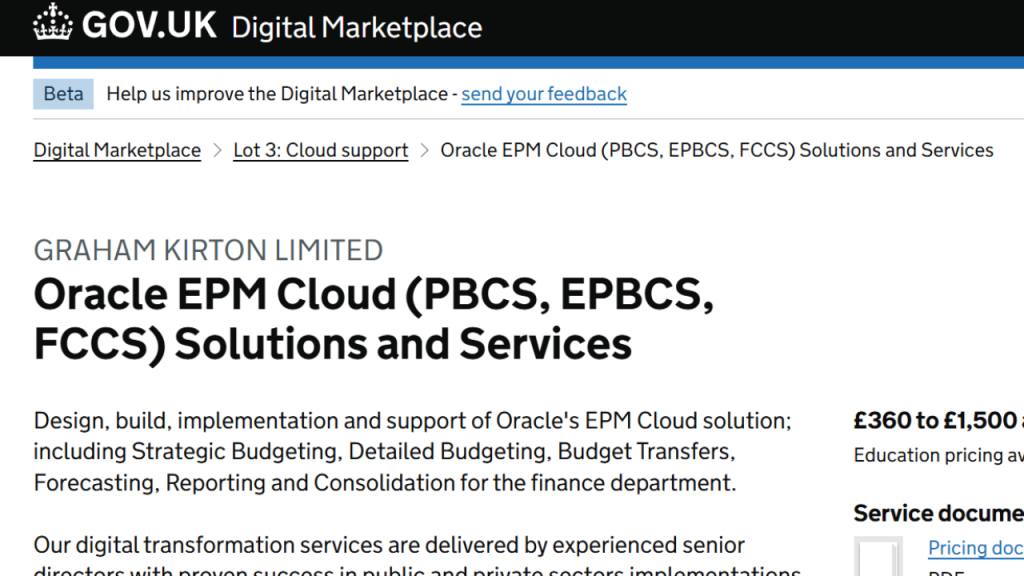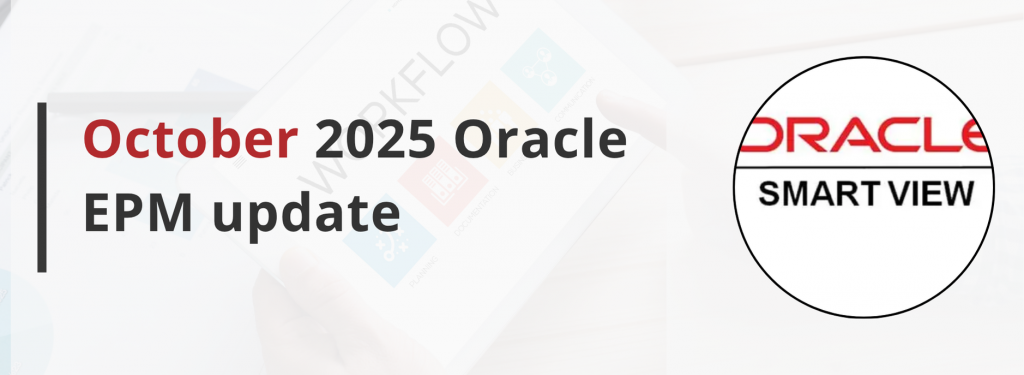
Why Most Finance Teams Aren’t AI-Ready, and how Oracle EPM fixes it.
Gartner says 65 % of organisations aren’t AI-ready. Here’s how CFOs use Oracle EPM to fix data chaos and build predictive, AI-driven finance functions.

The Problem: Everyone’s Buying AI, Few Are Actually Ready for It
CFOs are under pressure to turn buzzwords like GenAI and predictive forecasting into measurable results. Yet Gartner’s 2025 CIO Report reveals a hard truth: 65 % of organisations don’t have AI-ready data – or don’t even know if they do.
Most finance teams still rely on messy spreadsheets, inconsistent data definitions, and disconnected planning tools. This results in AI pilots that sound promising in presentations but collapse under real-world complexity. You can’t run predictive forecasting on data you don’t trust.
What “AI-Ready Finance” Actually Means
Being AI-ready isn’t about owning more tools, it’s about owning cleaner, connected, governed data. Gartner notes that organisations with high-quality, use-case-aligned data achieve 26 % better business outcomes from AI initiatives.
For finance, that means every figure, from revenue forecasts to OPEX drivers – must sit inside a unified, consistent performance model. Without that structure, machine-learning algorithms will amplify noise, not insight.
Where Most Finance Teams Go Wrong
Even the smartest finance leaders fall into three traps:
Disconnected systems : ERP, CRM, HR, and planning tools don’t talk to each other, so forecasting becomes guesswork.
Manual data wrangling: Analysts spend days fixing numbers instead of analysing them.
Static forecasting: Annual plans stay frozen while markets move hourly.
AI doesn’t solve these problems, only exposes them.
The Fix: Oracle EPM as the Foundation for AI-Ready Finance
Oracle EPM Cloud creates what Gartner calls a “governed data environment.” It unifies operational and financial data, standardises models, and embeds predictive algorithms directly inside the planning process.
Here’s what that looks like in action:
Predictive Planning: Oracle EPM’s built-in machine learning forecasts future performance using statistical models (ARIMA, regression, exponential smoothing).
Scenario Modelling: CFOs can simulate multiple what-if situations in real time, inflation shocks, pricing changes, supply-chain delays and instantly see the financial impact.
Data Governance: Every metric follows a single version of truth, eliminating the “spreadsheet drift” that kills AI accuracy.
Finance teams using Oracle EPM report faster planning cycles, higher forecast accuracy, and measurable improvements in decision speed, all precursors to successful AI deployment.
This shift isn’t just technical as it changes the role of finance itself.
Analysts stop firefighting data errors and start interpreting AI-backed trends. CFOs move from explaining yesterday’s numbers to shaping tomorrow’s strategy.
For example, a finance team using predictive planning could identify cost anomalies months earlier than traditional methods, potentially preventing hundreds of thousands in avoidable variance.
Why It Matters Right Now
In 2025, investors, boards, and regulators are demanding proof that AI investments drive real business outcomes. CFOs who can link technology to performance will dominate. Those who can’t will lose credibility fast.
AI success doesn’t start with algorithms, it starts with finance data structured for intelligence. Oracle EPM is how CFOs make that leap.
Ready to find out whether your finance data is AI-ready?
Request your EPM AI-Readiness Diagnostic - a 30 minute session that benchmarks your current planning environment against Gartner’s AI Data Fitness Framework.
Featured content
Part 1: In this blog, GK’s Managing Director Ed Graham explores five practical ways a dedicated FP&A tool, such as Oracle EPM or NetSuite Planning & Budgeting (NSPB), can significantly improve the way your finance team works.
We have developed a slick way of integrating SAP with any Oracle EPM application including the ability to integrate with SAP S4 Hana public cloud.
The GK Integrator is now officially available on the Oracle Cloud Marketplace.
The GK Integrator is our purpose-built solution that simplifies and accelerates the way businesses connect SAP (including S4 Hana Public Cloud), and other enterprise applications with Oracle EPM Cloud.
We’re live on G-Cloud 14. This means public sector organisations can now easily access our Oracle EPM services on the Digital Marketplace!
Have you seen the Oracle EPM’s latest update on our insights page? If not, now is the time!






